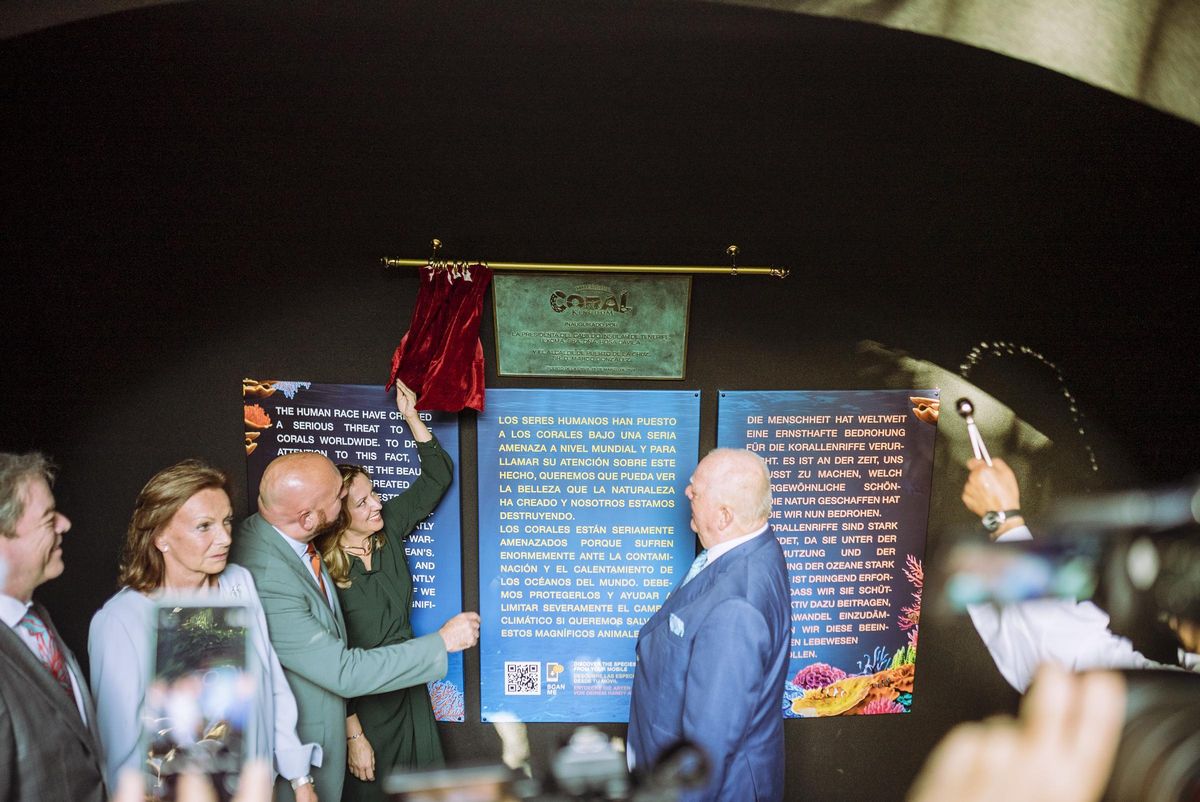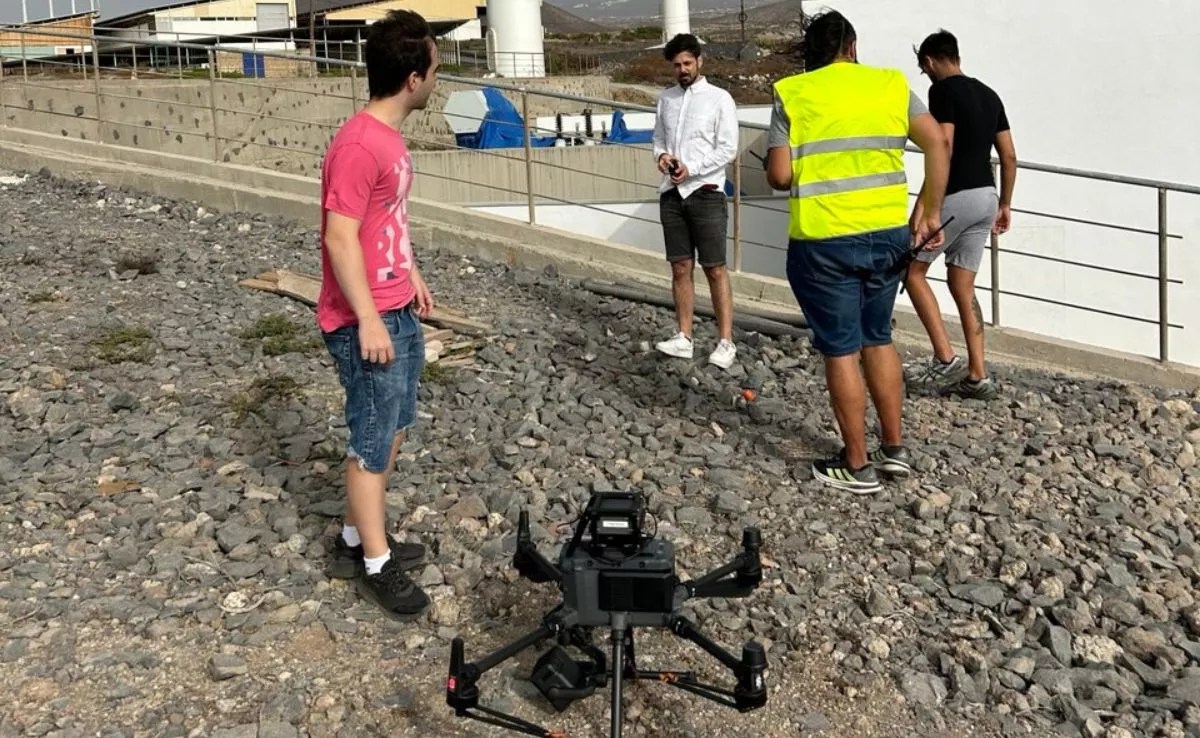Loro Parque unveiled Coral Kingdom, the largest coral reef outside the oceans. This new facility combines the most cutting-edge visual technology with a burst of life. With over 8,000 corals and almost 10,000 fish, in more than 260,000 litres of water, visitors are welcomed into a space that offers a unique immersive experience.
The event began with a speech from the president of Loro Parque, Wolfgang Kiessling, who highlighted the critical situation facing corals in nature and underscored the importance of this installation for their conservation. He also highlighted some of the most innovative aspects of the facility, such as its “never-before-seen” almost 40-metre long winding crystal.
The Mayor of Puerto de la Cruz, Marco González, emphasised the importance of Loro Parque in promoting tourism in Puerto de la Cruz. “Loro Parque has positioned itself as a global sustainability example, and for us, it is a pleasure to have it in our municipality,” said González.
The president of the Tenerife Council, Rosa Dávila, echoed Wolfgang Kiessling’s sentiments, stating that the launch of Coral Kingdom is a “wake-up call” about the critical situation of corals. “Coral Kingdom will be a space for raising awareness among the millions of visitors that Loro Parque receives every year,” she affirmed.
The event was attended by numerous authorities, as well as participants of the Annual Symposium of the European Association of Aquatic Mammals, with Loro Parque as the host. Over 300 guests were able to experience first-hand the unique immersive experience offered by the Coral Kingdom.
A Unique Immersive Experience
Coral Kingdom, the coral kingdom, is designed as a sensory immersion into the marine depths. A journey where the beauty of the largest reef outside the ocean unfolds in all its splendour. In just a few weeks, Loro Parque will open the doors to this new space, where virtual reality and nature will come together to create a unique experience for visitors. This reef is also an opportunity to collaborate in the preservation of corals, which are deeply threatened with extinction.

Moment in which the commemorative plaque is unveiled. / E. D.
The entire concept of this new installation is surprising and innovative. Its window, over almost 40 meters long, is made up of a continuous glass of perfect transparency, with a winding layout that contributes to creating a sense of movement and fluidity in the viewer. Its complexity makes it the largest of its kind in the world.
Nature and Technology
But the most striking part of Coral Kingdom is the symbiosis that nature and the most innovative audiovisual technology achieve. Through 360% projections and holograms of striking realism, the viewer will journey through the sandy seabed teeming with creatures, with waves breaking on the surface above their heads. A journey under the sea where the colour and beauty of the reef create a wonderful and unique world.
The atoll is made up of more than 8,000 corals of over 70 different species and around 10,000 fish. Clownfish, surgeonfish, butterflyfish, damselfish… Coral Kingdom is a complete ecosystem that replicates the reefs of the great coral reef of the Indo-Pacific in over 260,000 meters of water.
Species Protection Programmes
However, all this spectacularity goes much further. Corals are one of the most endangered species on the planet. Scientists estimate that nearly 90% of them could become extinct by 2050. This extinction would represent a tremendous devastation, as coral reefs are considered super ecosystems due to the number of species that depend one way or another on them. These “forests of the sea” that cover only 10% of the seabed are essential for maintaining the balance of seas and oceans.
Loro Parque is deeply committed to preserving the natural life of the planet and its species. A commitment that is reflected in the conservation projects in which the park’s species participate, with Coral Kingdom being a fundamental part. This beautiful reef will become, for marine researchers, an opportunity to study these species more deeply, generating knowledge that will help in their protection and recovery in their natural environment.
















